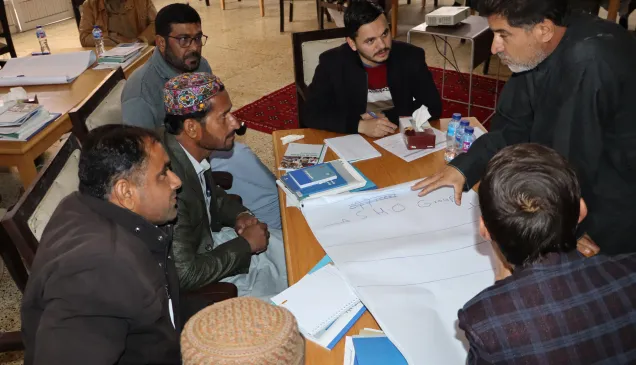Overcrowding: Pakistan prisons holding 57% more inmates than capacity

Pakistan's prisons are holding up to 57% more prisoners than their authorized capacity, leading to overcrowding that has had an adverse effect on the living conditions of both detainees and staff. The finding is part of a research titled "Addressing Overcrowding in Prisons by Reducing Pre-Conviction Detention in Pakistan" that has been developed by the National Counter Terrorism Authority (NACTA) in collaboration with Cursor for Development and Education Pakistan (CODE) and the International Committee of the Red Cross (ICRC).
The report gives a detailed analysis of the causes and consequences of prison overcrowding by highlighting the reasons behind the high number of inmates awaiting trial or court decision and the steps recommended to tackle them.
According to the report, two-thirds of the total prison population is still awaiting or undergoing trial. This has led to the overcrowding, which often results in deplorable living conditions for inmates and prison staff by compromising on the hygiene and health facilities. Due to the huge numbers, prisons are increasingly unable to play a corrective and reformative role. This is not only ironic for the prisoners and their families, but also for the state and society.
The report puts forth a number of recommendations for the government departments, ranging from balancing the use of imprisonment through de-criminalization of petty offences and introduction of alternatives to detention-like community service to prevent unnecessary arrest and imprisonment. Similarly, increasing the access to legal aid and providing better working conditions and advanced training modules to public prosecutors are also recommended. Introducing administrative measures at the level of the police and the prosecution for delays in submitting challans and taking measures against excessive adjournments are recognized as important steps to improve the situation. Measures to ensure the safety of different agencies and organizations involved in the criminal justice system are also advised.
The report is the outcome of a year-long research involving data collection and consultations with stakeholders like the federal government, the provinces and regions, police, prosecution, prisons, judiciary, lawyers, social activists, humanitarian organizations and subject-matterspecialists.
Ihsan Ghani, the national coordinator of NACTA, thanked the ICRC and CODE Pakistan for supporting its efforts in addressing the issue of overcrowding in Pakistan prisons. "We will continue to work with federal and provincial governments, civil society and humanitarian organizations to translate the recommendations of this document into actionable policies and implementable interventions," said Ghani.



